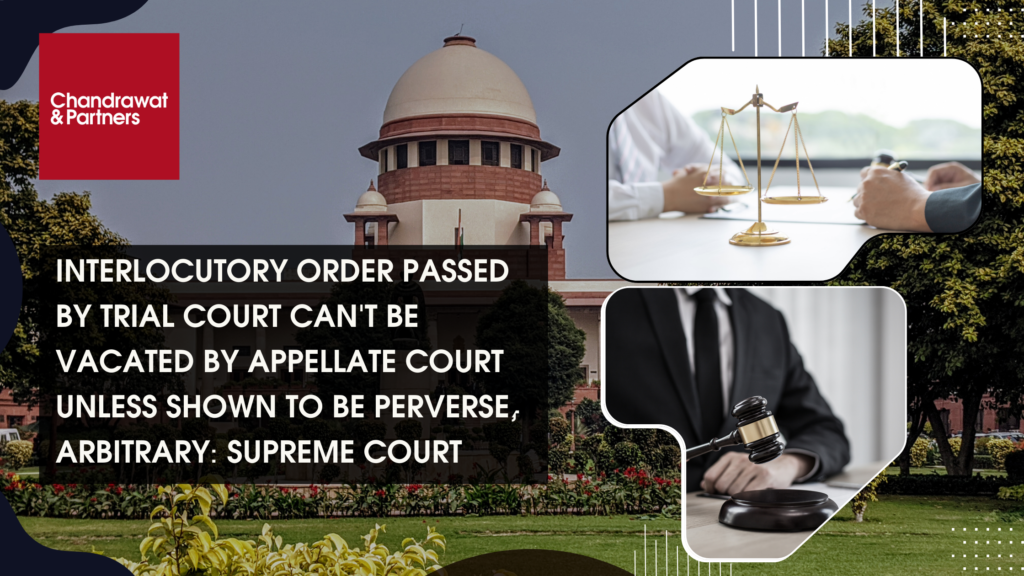Home > Recent Judgements > Interlocutory Order Passed By Trial Court Can’t Be Vacated By Appellate Court Unless Shown To Be Perverse, Arbitrary: Supreme Court
DEC 10, 2024

BACKGROUND
The Case of Ramakant Ambalal Choksi vs Harish Ambalal Choksi & Others emphasize the difficulties in overseeing financial agreements in a family firm. In this case, brothers argue over unfair approach to business funds and claimed breaking of family agreement. A family conflict involves a jointly held property in Vadodara, Gujarat, lies at the heart of this case. The dispute began when one of the family members, sold the property to his son without the other members’ approval by using a document known as a power of attorney, which granted him specific rights over the land. The remaining family members argued that this was done in an unjust manner and at a significantly lesser sum than the property’s true worth.
In order to prevent additional activities related to the property until the issue was settled, the offended family members moved to court. A higher court overturned the lower court’s order to support them and halt all transactions. After that, the family approached the Supreme Court for justice.
KEY ISSUES
1. Whether the trial court have good reason to issue the injunction based on irreparable injury, the balance of convenience, and prima facie evidence?
2. Whether the High Court interference with the trial court’s discretionary order go beyond its authority?
JUDGEMENT
The Supreme Court reinstated the trial court’s injunction and overturned the High Court’s ruling. banned any additional encumbrances or transactions while the suit was pending and instructed the parties to keep the status quo with regard to the suit property.
OBSERVATION
The appellants had presented a compelling prima facie argument, the Supreme Court observed. They demonstrated that the respondent’s power of attorney was only used for administrative functions and did not permit the property’s sale. There are significant doubts regarding the legitimacy of the transaction because the property was sold for a wildly cheaper price.
The Supreme Court noted that unless there is undoubtedly proof of abuse of discretion, appellate courts shouldn’t arbitrarily alter trial courts’ discretionary orders. The High Court’s interference was unjustified since it did not recognize any arbitrariness or perversity in the lower court’s order. Further, it emphasized that temporary injunctions are crucial even if Section 52 of the Transfer of Property Act, 1882 guards against transfers while a case is still pending. They avoid needless complexities that can complicate the legal process, like third-party interests.
The High Court’s strategy, which focuses on unrelated elements like the plaintiffs’ claims of harassment, alarmed the Court. It underlined that appellate courts must rigorously follow the law and refrain from being swayed by irrelevant factors.
For more information or queries, please email us at
enquiries@chandrawatpartners.com




